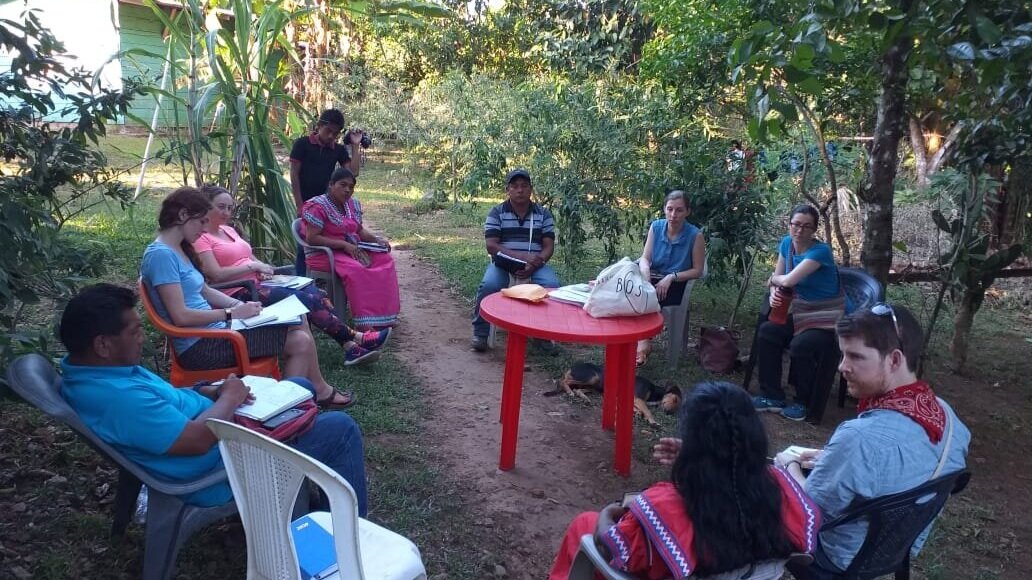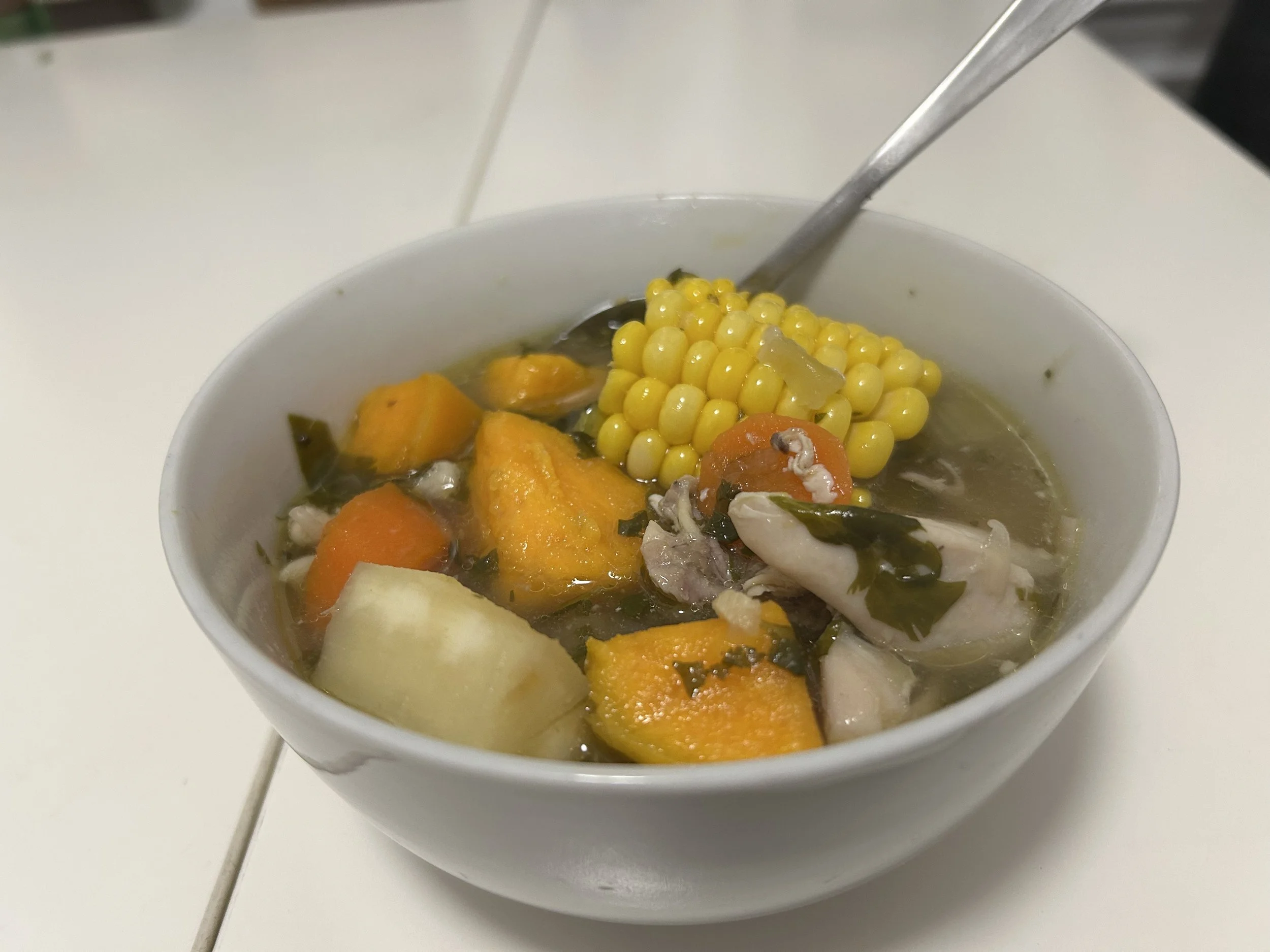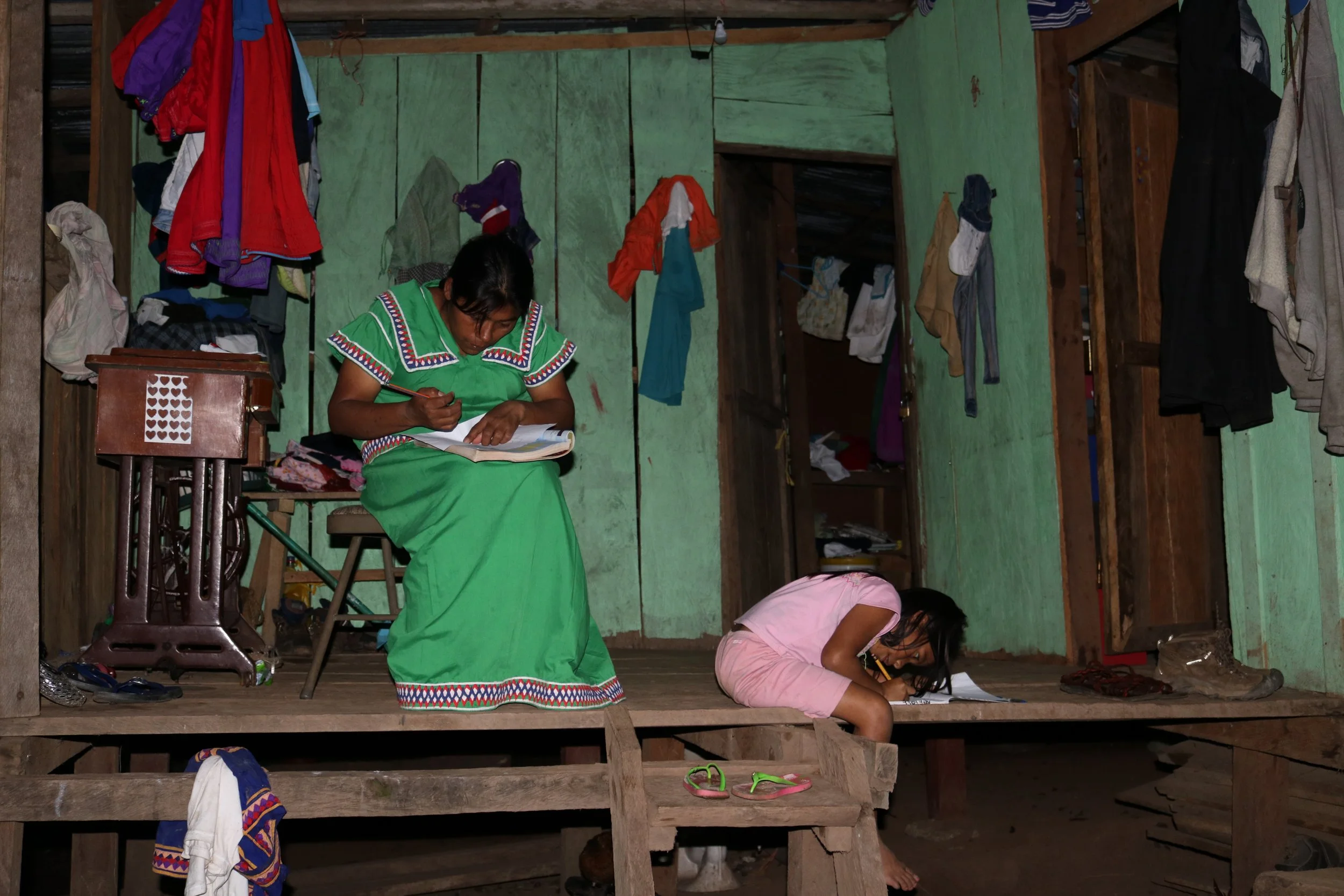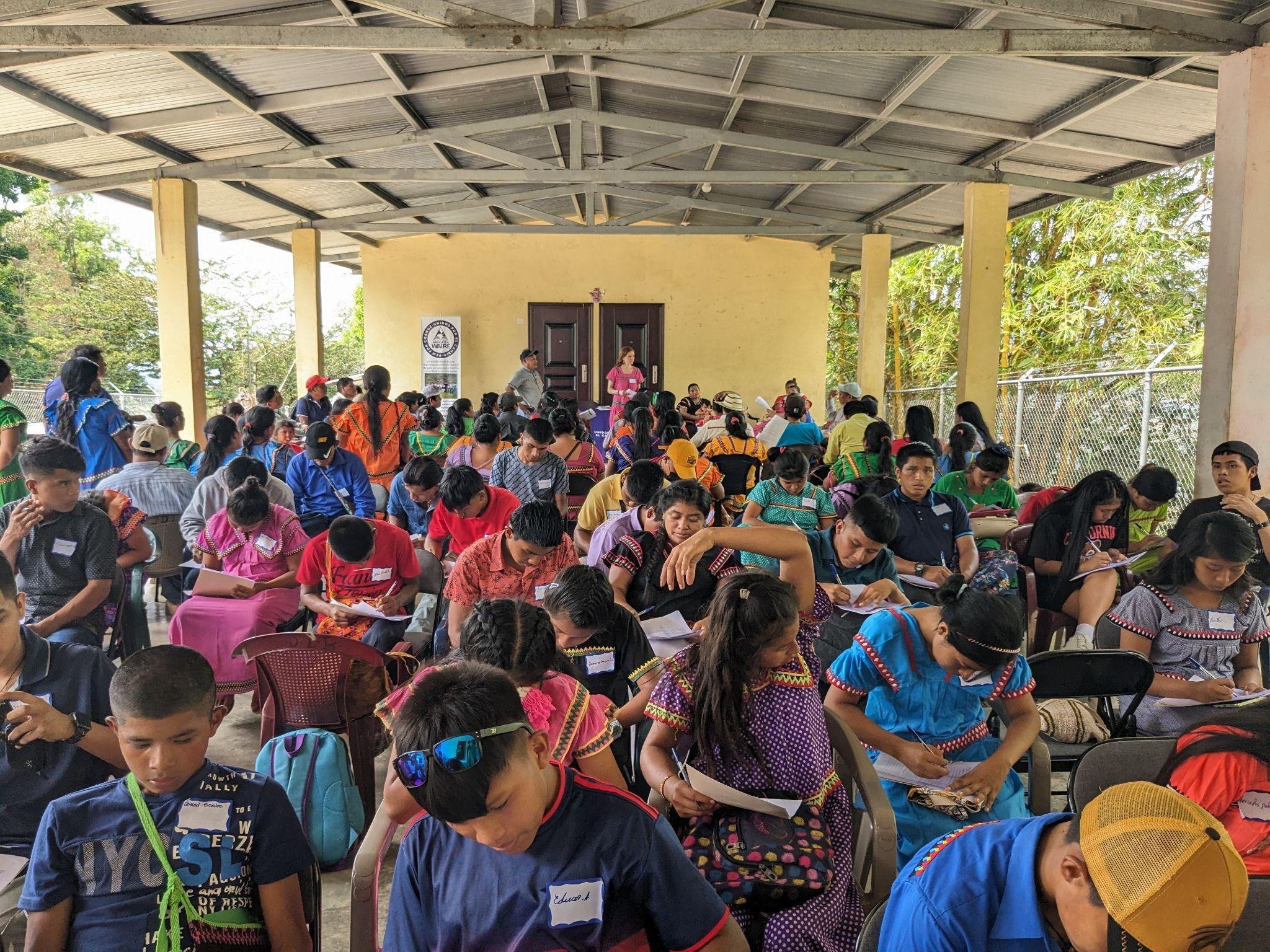Panama and the United States of America share histories of colonization. Panama was colonized by the Spanish, then by the Colombians, then, sort of, by the USA. Similarly, the territory that many of us call home, now known as the United States of America, was and is home to hundreds of indigenous nations and was colonized by English, Spanish, French, Dutch, and other European peoples. Americans often celebrate these colonial histories and look back on the process of colonization through the rose-tinted glasses of white supremacist narratives. We tell ourselves that the indigenous inhabitants of the "New World" were "uncivilized" and that when the colonizers brought education, technology, religion, etc., the natives welcomed them with open arms (the Thanksgiving Myth, for example). We justify genocide with "Manifest Destiny" and myths of brave frontiersmen. We conveniently forget that the heroes of our founding — from Washington to Hamilton to Jackson — led brutal wars against natives, and when we do remember (the Trail of Tears, for example), we normalize and sanitize the stories, arguing that there were atrocities committed on both sides.
What does this have to do with Few for Change, you ask? Great question! As a US-based organization led mostly by people of European descent, we've been thinking a lot about these legacies of colonization and white supremacy. We've also been thinking a lot about Decolonization and Indigenization, inspired by social movements like Black Lives Matter and #LandBack. One of the narratives of white supremacy that we've been grappling with recently is the implied assumption that we know best. Our board is made up entirely of gringos — Americans. For several years, our volunteers have referred to us as “los gringos buenos,” or “the good Americans,” noting that we’ve stayed and worked with the community to make change, rather than showing up briefly and not following through on promises like other Americans they’ve met. We loved this moniker, thinking that it indicated true partnership with our community volunteers. While we have always striven to be a community-led organization built on values of partnership and reciprocity, in the past couple years we realized that our structures weren't matching our values. So we set out to change that.
Last year, after our annual board retreat, we set up an advisory board composed of Few for Change volunteers and community members from the places in which we work. The plan was to meet at least twice a year with the Advisory Board to have strategic discussions about the future of the organization and our programming. We had previously crammed such conversations into an hour or so after our annual scholarship ceremony, usually when everyone was exhausted from a hard day's work and eager not to miss the last bus out of Quebrada Guabo (it's at least a 2-hour ride for some).
We held our first Advisory Board meeting in September of 2019 via Skype, and, despite the logistical and technological challenges of communicating across thousands of miles, multiple time zones, and three different languages (Ngäbere, Spanish, and English), we sensed that we were onto something. We couldn't have known then that our next meeting would result in a totally new way of operating...or how much the world would change in the coming months.
When we arrived in the Comarca in February (mere weeks before the COVID-19 lockdowns began in Panama and the US), we had planned to have a "strategic planning" meeting with our advisory board the day before the scholarship ceremony. We figured that with a little more time and a little less exhaustion we could dive into some of the thornier topics about the future of Few for Change — How do we want to grow the organization? Should we expand to more communities? Do we want to provide leadership training or career counseling to complement our scholarships? What is our theory of change? We had sticky notes and flip charts. We were expecting to have a typical American non-profit-style meeting but what emerged was a much deeper and more useful conversation led by our Ngäbe partners.
Meeting with the Advisory Board in Doris’ backyard, planning the future of Few for Change.
As the sun set behind the mountains, we sat in a circle in Doris' backyard chatting and catching up on the past year. Brooks had gotten married. Edgar was still making good progress in his university studies despite the difficulties of a long commute and limited internet access. Ariadne was pregnant. Ramón and his neighbors had finally purchased a truck of their own to provide more reliable transport to and from Hato Ratón. As we turned to business, we quickly realized that we should throw out the agenda, leave the sticky notes aside, and let the Advisory Board guide the discussion. Each of the advisors took turns sharing their visions for what Few for Change/Unidos por el Cambio/Ari Kuitde Waire should look like in five years, how to add value for the students in the program, and how to foster reciprocity among students and their communities. After the twilight faded, we kept the conversation going over dinner at the restaurant run by our friends at the Ngäbe Women's Association (ASMUNG) and by the end of the night we were all feeling energized and excited to realize the visions we had discussed that day. As we said our goodbyes for the evening, Doris, Ramón, Rogelio, and Agripina conferred together in Ngäbere off to one side, clearly planning something.
When we arrived at the school the next morning for the scholarship ceremony, Ramón approached Few for Change President Katie Clay with a smile on his face. "Can we talk?" he asked. As the rest of us arranged the chairs and started greeting the early arrivals, Ramón, Katie, and Vice President Ariadne Prior-Grosch huddled away from the commotion, talking in hushed tones. When they rejoined the group, Katie announced the big news: inspired by our conversation the day before, Doris, Ramón, and Rogelio had met early that morning and decided to form a "junta directiva" - a parallel Ngäbe board of directors. Ramón had been elected president, Doris vice-president, Rogelio secretary, and Agripina treasurer. The Junta Directiva and the Board of Directors would make decisions collaboratively going forward, guided by the wisdom of those who know their communities best.
We left the scholarship ceremony, our largest ever, feeling elated about what this new structure would mean for the organization. Beyond the importance of aligning our structures with our values, we knew that the newly formed Junta Directiva would help us be more effective, more resilient, and more responsive to the needs of our students, their families, and their communities.
As the COVID-19 pandemic hit, we began to realize just how important the creation of the Junta Directiva was. Less than a month after our scholarship ceremony, just as the Panamanian school year was starting, the Ministry of Education closed schools throughout the country. Suddenly, students were left in educational limbo, not knowing when or if they would return to their classrooms and struggling to adapt to remote learning. Few families in the Comarca have access to reliable electricity, let alone internet, and many students have been completing their homework on cell phones borrowed from family and friends. In the middle of this uncertainty, the Junta Directiva has been meeting regularly to discuss the ways that Few for Change can support its students and what changes the organization needs to make in the face of these challenges. With their guidance, we decided to postpone distributing and collecting scholarship applications for new students until it is safe to do so, and have been considering other options to help to meet the immediate needs of our current students, such as providing funds for purchasing cellular data cards or communal cell phones that students could borrow to do their school work during the pandemic.
During the COVID-19 pandemic, the Junta Directiva and our community volunteers have kept Few for Change running while ensuring the health and safety of our students and their families.
With the leadership of the Junta Directiva and the community members that have dedicated themselves to the work of Few for Change/Unidos por el Cambio/Ari Kuitde Waire, we have been able to adapt our operations to better support our students through the COVID-19 crisis. This new, collaborative model of decision-making has been essential during these difficult times and we believe that it will make us a much stronger organization moving forward.
















